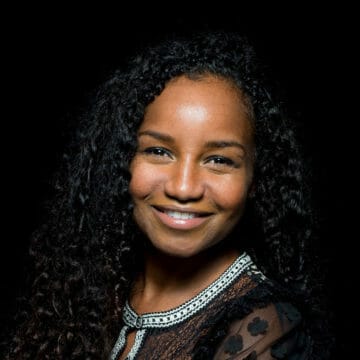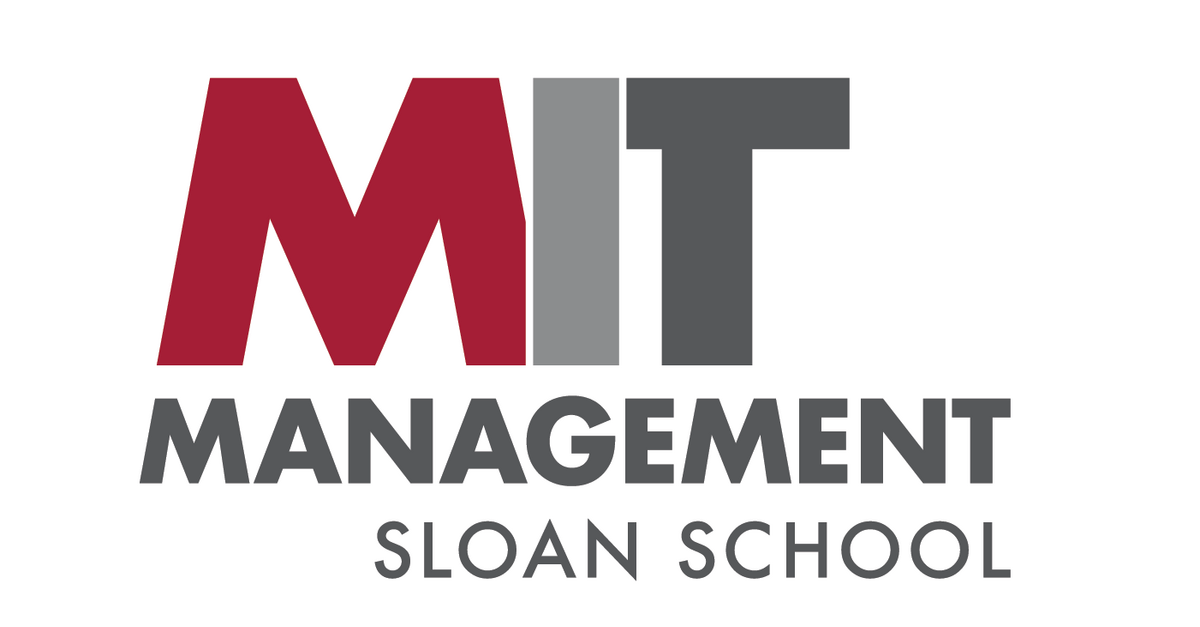Videos
Learn More About Renee Richardson Gosline
As marketing touchpoints become increasingly digital and customer experience becomes a central differentiator for competitive advantage, how can businesses build and share value with the people they serve?
Renee Richardson Gosline, Ph.D., a senior lecturer in the Management Science Group at the MIT Sloan School of Management and a leading digital marketing expert, says building and maintaining brand loyalty requires a human-centered customer experience (CX) strategy. A hands-on practitioner who previously worked in the private sector for LVMH and Leo Burnett, Gosline has advised leaders at Fortune 500 companies including IBM, P&G, Johnson & Johnson, Salesforce and BMW using her research-backed frameworks for transforming CX with behavioral science.
Gosline is a leading thinker on how AI affects human judgment and the interplay of human and AI bias. Her forthcoming book, “In Praise of Friction,” examines how AI affects our experiences, and the importance of auditing our decision-making processes to minimize “bad friction” and leverage “beneficial friction.” Her experiments have examined: the persuasiveness of generative AI and human co-authorship; the impact of adding friction to generative AI to improve quality; when people are likely to exhibit algorithmic aversion or appreciation; how cognitive style predicts preference for AI versus human input; how technology affects performance via placebo effects; how consumers determine “real” from “fake” products; and the effects of storytelling in social media on trust and persuasion.
In her engaging talks, Gosline demonstrates how a better understanding of CX can improve user experience, catalyze a company’s digital transformation, and create collaborative dynamics with customers. As the head of the Human-First AI group at MIT’s Initiative on the Digital Economy (IDE) and a digital fellow at the Stanford Digital Economy Lab, she studies the science behind choice, then applies her winning strategies in real-world settings with powerful results. Her research shows how cognitive style shapes decisions along the customer journey and how we can strategically design experiences that maximize optimal choice and customer satisfaction. Through hands-on group customer journey exercises and an emphasis on building a culture of experimentation and data-driven strategy, Gosline provides a blueprint for identifying, testing and leveraging customer insights.
“We should think about steps along the customer journey as a series of linked decisions mediated by technology,” explains Gosline, who was named among the world’s Top 40 Professors Under 40 by Poets and Quants. “We have the power to optimize CX by guiding these decisions in a way that leads people through their journeys more easily at touchpoints, ethically.”
Renee Richardson Gosline is a professor in the MIT Executive Education program and MBA program and leads the new Human-AI Integration Pillar at MIT’s Initiative on the Digital Economy (IDE). Her expertise is at the intersection of behavioral science, technology, and the implications of AI for cognitive bias in human decision-making. She also teaches a highly acclaimed and in-demand MIT Executive Education course on CX strategy to executives from some of the most innovative companies in the world. Her research examines how technology affects human judgment and performance; how cognitive style predicts preference for AI versus human input; the interaction of digital brand status and placebo effects in performance; inclusive leadership strategies; how consumers determine “real” from “fake” products; the circumstances under which customers perceive value in platforms; and the effects of storytelling in social media on trust and persuasion. She is currently writing a book to be published with MIT Press that looks at the intersection of behavior economics and AI, and the implications for CX.
Named one of the world’s Top 40 Professors Under 40 by Poets and Quants, Gosline is a 2020 honoree of the Inaugural #Blacklist100 of “Black Thought Leaders Creating Positive Change” and sits on the Scientific Affiliate Board of the behavioral economics policy group Ideas42. She was named to the Thinkers50 Radar Class of 2020 for her work examining the interplay between human decision-making and algorithmic bias. She holds undergraduate and graduate degrees from Harvard University, including a doctorate from the Harvard Business School.
Renee Richardson Gosline is available to advise your organization via virtual and in-person consulting meetings, interactive workshops and customized keynotes through the exclusive representation of Stern Speakers & Advisors, a division of Stern Strategy Group®.
Human-AI Collaboration: Experiments in Decision-Making for Better HITL Systems
With the advent of large language models (LLMs) and widespread access to generative “AI,” many firms are exploring human-AI collaborations and their potential to make content creation more efficient. These “human in the loop” (HITL) systems could also help address concerns about the potential unmitigated proliferation of inaccuracy and bias in frictionless applications of AI. Many are asking how we can leverage the efficiency benefits of generative AI while creating safeguards for human use. In this talk, Renée Richardson Gosline, Ph.D., head of Human-First AI research group at MIT’s Initiative on the Digital Economy, will discuss some of her latest experiments. Participants will explore emergent insights and a framework for approaching friction in HITL systems – identifying when it is harmful and when it is beneficial – to increase efficiency and mitigate inaccuracy.
Breakthrough Customer Experience
The average person makes tens of thousands of choices per day. In light of such an overwhelming decision-making burden, how can we create a customer journey that improves purchasing outcomes and the customer experience? In this highly interactive session, MIT senior lecturer Renée Richardson Gosline, Ph.D., shows participants how to remove obstacles from a shopper’s path while preserving agency, especially when their cognitive load is at an all-time high, such as during a pandemic. Taking a human-centered approach to CX, Gosline teaches executives how to deconstruct the customer journey – a chain of behavioral choices influenced by psychological factors – and re-construct it through “nudges,” targeted experiments, data activation, and team culture shifts. In situations where clear product benefits don’t convert into action, she explains how to reduce complexity and guide users toward overlooked product and brand value. According to Gosline, better CX can be accomplished by creating a “best-of-both-worlds” approach that is at once heavily data-driven and keenly aware of human emotions. With equal weight given to behavioral economics theory, experience-mapping and discussions of strategy, Gosline helps companies architect customer experiences that are not only meaningful, but delightful.
A Behavioral Science Foundation for Inclusive Leadership and Ethical AI Strategy
MIT senior lecturer Renée Richardson Gosline, Ph.D.’s human-centered approach to CX emphasizes ethical tactics in the use of AI and data capture and the importance of inclusive groups. In her highly engaging presentations, Gosline teaches executives and entrepreneurs how to integrate AI into CX in a way that creates value for the customer and the firm and allows them to rethink their go-to-market plans so they can meet shifting buyer expectations. “Now is the time to reflect on how we’re delivering value to customers and who we are as brands,” says Gosline. “In the face of disruption and crisis, what is our central purpose, and are we innovating in a way that is aligned with that? We need to understand the people behind the data points in order to anticipate their needs and deliver solutions that are relevant. Understanding that this is your brand’s North Star will help you develop consistent and resonant customer experiences.” Recognizing that cognitive biases reach beyond customer experiences into how organizations approach branding and how they collaborate internally, Gosline helps leaders and teams understand how biases can harm their internal culture as well as alienate or exclude potential customers. In her popular workshop “Applying Branding Principles to Combat Unconscious Bias,” she teaches participants how they can make more authentic connections with varied audiences and with each other so they can better collaborate, innovate and serve wider audiences.
Building a Culture of Experimentation
In today’s highly competitive business environment, organizations must continually generate new ideas that disrupt their industries. In this presentation, MIT senior lecturer Renée Richardson Gosline, Ph.D., teaches leaders and teams how to design a culture of innovation by leveraging AI and behavioral science principles. Pointing to the value of digital transformation and field experiments, Gosline reveals how to bridge the knowledge gap and apply data to what you already know using strategic experiments. With an arsenal of proven methods, such as human-centered AI, psychological safety and viewing the customer as a co-creator of value, Gosline shows participants how they can successfully develop innovations that lead to big rewards.
Nudging Breakthrough Customer Experience Strategy
Digital technology has revolutionized the way humans behave and make decisions. What do these shifts mean for customer experience (CX) and competitive strategy? Renée Richardson Gosline, Ph.D., uniquely applies both behavioral science “nudges” and a data analytical lens to help you develop breakthrough digital CX. She simplifies complex, new and still-emerging topics and tools in ways that are immediately relevant and actionable for CEOs, CXOs, CIOs, CMOs, Data Scientists, and their teams. Grounded in scientific research and practical experience that bridges the gaps between classic approaches and modern marketing CX strategies, Gosline shows participants how to:
- create an organizational culture that embraces digital transformation and field experiments
- increase adoption of new ideas among leadership and teams
- design a customer experience strategy that is the best of both worlds—data driven but also keenly aware of the human element
Whether you are part of new company leveraging the latest technologies, or a legacy organization feeling the pressures of digital transformation, this session will leave you with a varied set of actionable tools to help you and your team enhance the digital customer experience your company provides.
More Than Data: The Fundamentals of Building a Brand
Today’s digitally native startups are deeply rooted in rich data, driven by breakthrough technologies that are solving problems in business and society. But data on its own doesn’t make a brand. And tech-minded, data-oriented entrepreneurs often aren’t modern marketing and branding experts. Renée Richardson Gosline, Ph.D., is. Gosline, who teaches MIT’s brand strategy course (popular with current and aspiring entrepreneurs), introduces startups to the fundamentals of branding, and prepares them to build and protect their brands. In this session, Gosline takes a more scientific – but actionable – approach to consumer behavior in order to understand how “rational” consumers can make surprising purchase decisions. She discusses purchase heuristics and ideas for collecting actionable data via field-based experiments. She also lays a foundation of classic and essential marketing principles, including competitive positioning, creative briefs, design thinking, and multi-methods for developing science-based consumer insights and personae. Additionally, she tackles some of the strategic issues that affect brands at various stages of the “life course,” including challenges that come with success (e.g., imitation, second-mover advantage, etc.). Brand is an invaluable asset for every company, big and small, established and emerging. This presentation will provide the essential tools and ground rules for establishing a brand strategy that will convince investors you’re worth betting on.
A Leadership Issue: Applying Branding Principles to Combat Unconscious Bias
How does one become an effective leader in a diverse world? Inspiring people from various groups is not merely a “diversity” issue; it is a key factor for innovation. Renée Richardson Gosline, Ph.D., leads groups through a science-based and actionable session on inclusive leadership for optimal performance. She begins with unpacking cognitive associations and heuristics — the subconscious mental shortcuts that shape everyone’s judgments. On one hand, labels and their associations allow us to make more efficient decisions in the “blink of an eye,” serving as rules of thumb in the face of limited information and overwhelming options. However, these cognitive shortcuts and associations are also subject to biases, says Gosline, of which even the most “rational” leaders must beware. In this presentation, Gosline will apply her background in social science to the goals of inclusiveness in leadership, identifying strategies that can help leaders make authentic connections with varied audiences to spur innovation. She helps audiences explore how each of us can take a mindful approach to advancing the type of community that empowers everyone to fulfill his or her potential. Gosline will use principles from behavioral science and discuss cases from social media, politics and business. She will help us toward a better understanding of how the decisions we make as leaders are affected by labels and their associations, and how that understanding can make leaders more effective in building inclusive environments and maximizing performance.

Human Favoritism, Not AI Aversion: People’s Perceptions (and Bias) Toward Generative AI, Human Experts, and Human-GAI Collaboration in Persuasive Content Generation
(Judgment and Decision Making, November 2023)
Brand strategies and customer experiences are not one-size-fits-all. Every company and every customer is on a unique journey with their own needs, wants and expectations. What works for one may not work for another. Renée Richardson Gosline, Ph.D., extends the value of her presentations with hands-on, customized-to-your-organization workshops and advisory engagements. Her interactive exercises are designed to push entrepreneurs and veteran marketers alike to think differently about and experiment with creating competitive advantage through branding and customer experience.
For startups or other organizations that may not be positioned to hire a CMO or agency, Gosline is available as an external, expert resource for branding and marketing guidance and counsel. She is also an experienced testimonial expert for litigation.
















































